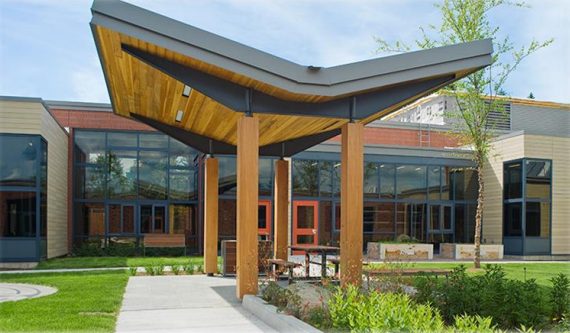MONTPELIER – A years-long legislative effort to create a separate forensic mental health system culminated in the passage of a law that will, by next summer, turn the four and five-bed units of the Vermont Psychiatric Care Hospital into a locked “therapeutic community residence” that will allow the use of restraint and seclusion for psychiatric patients being held based upon criminal charges.
Most U.S. states already have separate psychiatric facilities for defendants deemed incompetent to stand trial or found not guilty by reason of insanity. But until now, Vermont’s system of care has not distinguished between such patients and those involuntarily committed by civil courts.
The new law stipulates that two units at VPCH, a locked, 25-bed, state-owned hospital in Berlin, will serve as the “initial” site for segregated forensic treatment, seeming to imply the eventual construction of an all-new facility.
But Deputy Commissioner of Mental Health Allison Krompf said the Department has no such plan. She said the intent was to grant flexibility in case the VPCH conversion falls through.
“There was no sort of, ‘We’re gonna start here and then in three years plan to move it somewhere else,’” she said.
In order to change uses, VPCH will receive a new license from the state to treat justice-involved patients on court orders of non-hospitalization (restrictions outside a hospital). This changeover – which was exempted from requiring a Certificate of Need from the Green Mountain Care Board – will result in a loss of nine high-security, “level-one” inpatient beds when they become forensic beds instead.
But as part of addressing a patient population committed based on allegations of violent offenses, the new law requires the Department of Disabilities, Aging and Independent Living to modify its licensing and operating regulations to create a new category of “residential” treatment that will have permission to use emergency restraint and seclusion and administer court-ordered drugs.
In 2021, psychiatric survivors campaigned successfully against a plan by the Department of Mental Health to use restraint and seclusion at its new locked residence in Essex, which belongs to a category of 24 facilities statewide that have never legally deployed such practices.
The forensic facility at VPCH will be the first.
Over recent years, Vermont police have attributed a handful of high-profile crimes, including the murder of a young woman in Bennington in early 2021, to perpetrators with psychiatric diagnoses. In their aftermath, victims’ families have pushed legislators to address public safety concerns.
Two years ago, at the legislature’s demand, DMH convened a workgroup for the purpose of developing a plan to remedy “any gaps in the current mental health and criminal justice system structure.” But its diverse membership, which included both psychiatric survivors and crime victims, failed to reach a consensus.
This year, lawmakers moved forward to modify laws that govern competency exams and insanity defenses in Vermont’s criminal courts, as well as authorizing the new facility.
While the question of sanity addresses a defendant’s mental state at the moment of the alleged offense, that of competency addresses their ongoing ability or inability to stand trial.
Under the new law, DMH-appointed psychologists – not just psychiatrists, as before – will be eligible to evaluate defendants for competency during a one-year trial period.
The original bill instructed DMH and DAIL to develop a plan for a treatment program specifically aimed at restoring someone’s competency to stand trial, but the final legislation instead mandated a report from the departments “on whether a plan for a competency restoration program should be adopted in Vermont.”
Zachary Hughes, the vice president of Vermont Psychiatric Survivors’ board of directors, offered testimony on both bills. He urged legislators to remember that, once a doctor has judged a defendant incompetent to stand trial or a court has found them not guilty by reason of insanity, “this isn’t a criminal situation anymore.”
He also encouraged them to “keep politics out” of their decision-making, and to consider making more investments in voluntary mental health programs before building a forensic facility. “You may not need it if we can get more community services rolling,” he said.
The Senate version of the bill set criteria for admissions (and for expedited admissions) at forensic facilities that included not just individuals in DMH custody but also those in DAIL custody based upon being “persons with an intellectual disability” who, according to a civil court, had committed violent acts. They have received care only in community placements since the Brandon Training School closed in 1993.
Testimony by Green Mountain Self-Advocates and Disability Rights Vermont, among others, protested the plan. The legislature ultimately created a workgroup to assess specifically “whether a forensic level of care is needed for individuals with intellectual disabilities.” A report is due by Dec. 1.

